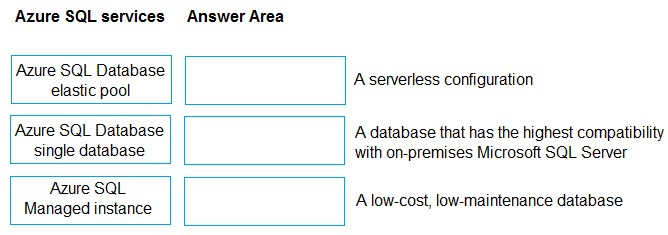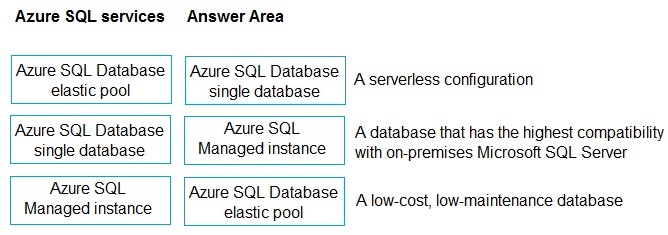
Expert Verified, Online, Free.

DRAG DROP -
Match the Azure SQL services to the appropriate use cases.
To answer, drag the appropriate service from the column on the left to its use case on the right. Each service may be used once, more than once, or not at all.
NOTE: Each correct match its worth one point.
Select and Place:

brainiacATH
Highly Voted 1 year, 7 months agookayhey
2 months, 1 week agoAnonymousJhb
1 year, 7 months agoj888
1 year, 6 months agoj888
1 year, 6 months agoSwissAir
Highly Voted 1 year, 8 months agoSr18
2 weeks agoSr18
2 weeks agovirtualcharm
1 year, 1 month agojust_karlijn
1 year, 7 months agoJA2018
1 year, 7 months agoAGTraining
Most Recent 2 months, 2 weeks agom0j7zdgm
3 months, 1 week agoKemsmems
6 months, 1 week agoPixan
6 months, 2 weeks agoaadil111
1 year, 1 month agobarcodepiglet
6 months, 2 weeks agochiiiweiii
1 year, 2 months agoravick4u
1 year, 3 months agoDusica
1 year, 5 months agoMaddhy
1 year, 6 months agoOldSchool
1 year, 6 months agoPatYeo
1 year, 7 months agofusioner
1 year, 8 months ago